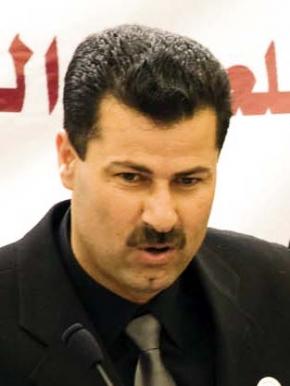Category: Reports
-
Abdallah Abu Rahmah: Know the facts and act now for the freedom of a nonviolent freedom fighter
27 August 2010 The West Bank village of Bil’in has become a symbol of the wider popular resistance movement in Palestine. Abdallah Abu Rahmah, head of Bi’in’s Popular Committee, is one of many key organizers of peaceful resistance that Israel has used legal means to persecute. He was convicted on Tuesday of two out of…
-
Izbet Tabib under threat
24 August 2010 | ISM Media In the small village of Izbet Tabib near Qalqiliya in the north of the West Bank, 27 of the 55 houses have received eviction orders from Israeli authorities. Located in Area C (following the Oslo Accords making it Israeli civilian and militarily controlled), the village has an extremely hard…
-
Demonstration against water theft in Baqa’a Valley, Hebron
23 August 2010 | ISM Media Today (23 August 2010) a demonstration was held in the Baqa’a Valley, east of Hebron, against the theft of water from the Palestinian population in the area. About 15 water trucks were parked along Road 60, the road that runs through the valley. The intention was to protest against…

